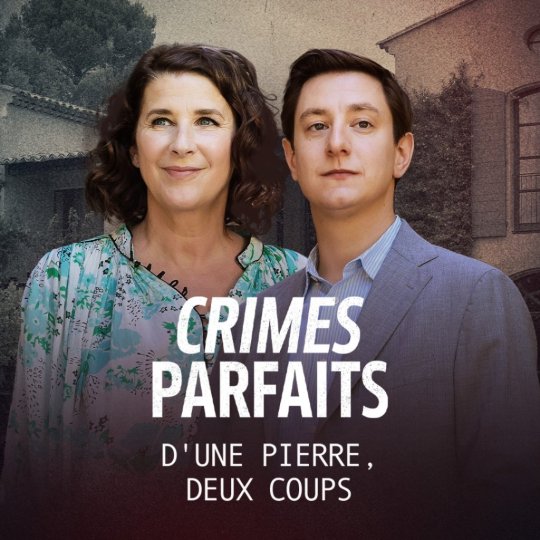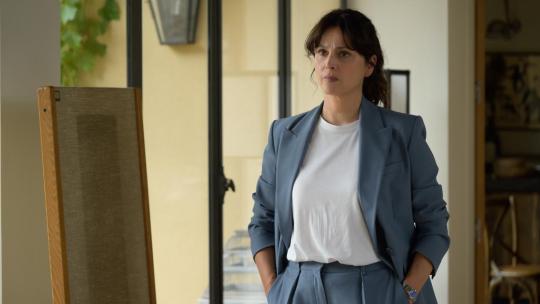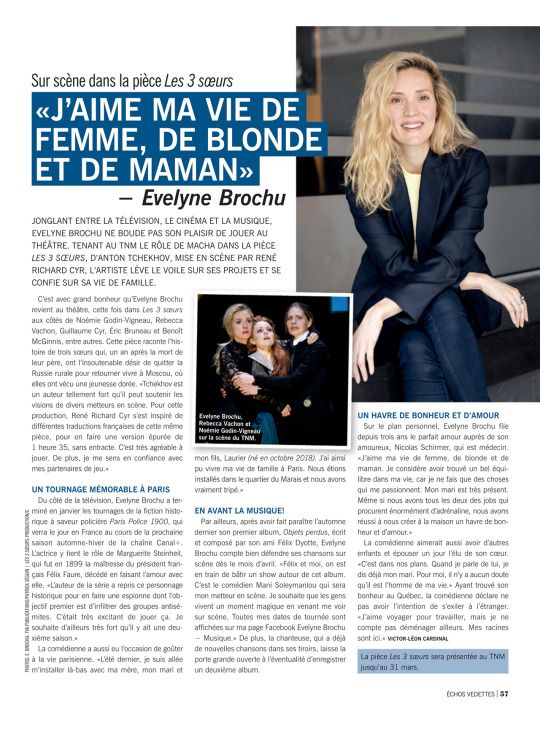#Franc Bruneau
Explore tagged Tumblr posts
Text


Plaque en hommage à : Kléber Meunier et Georges Bruneau
Type : Commémoration
Adresse : 11 avenue Stephen Pichon, 75013 Paris, France
Date de pose : Inconnue
Texte : A la mémoire de Meunier Kléber, mort en déportation, Bruneau Georges, F.F.I, tous deux tombés pour que vive la France
Quelques précisions : Kléber Meunier (1888-1942, photo) est un militant communiste français. Après son service militaire, il combat pendant la Première Guerre mondiale, durant laquelle il est blessé et emprisonné après avoir été soupçonné de désertion. Devenu ouvrier après la guerre, il devient syndicaliste et s'engage aux côtés du Parti communiste. Pendant la Seconde Guerre mondiale, il s'oppose à l'occupation nazie, ce qui entraîne son arrestation en 1942. Il est déporté à Auschwitz, où il meurt.
Il est en revanche plus difficile de trouver des informations sur Georges Bruneau.
#collectif#commemoration#seconde guerre mondiale#resistance#syndicalistes#france#ile de france#paris#non datee#kleber meunier#georges bruneau
0 notes
Text
Voici les 4 coachs de La Voix 2024!
Continue reading Untitled

View On WordPress
#actualités#Corneille#culture#France D&039;Amour#les zackardises#Les Zacktualités#Mario Pelchat#Roxane Bruneau#Télévision#TVA#zachary barde
0 notes
Text
introduction to chronemics
time binding, polychronicity and monochronicity, time orientation, learned and innate awareness. an incredibly niche subfield of anthropology, philosophy, linguistics, (and for me, human geography) chronemic scholars study how time is percieved and how these perceptions shape human behavior across cultures.
what is chronemics?
the study of human temporalities as they relate to semantics and communicative intersections. all areas of nonverbal communication are linked through this subject, as all comnunicative codes have distinct patterns of time(s), rhythm, and tempo. the first 'scholars' of chronemics, or the study of time, could be plato (who reasoned time was the moving image of eternity), aristotle (who determined it was the number of motion), and plotinus (calling it the life of the soul). much later, french biophysicist and philosopher du nouy created a more scientific definition, stating that time is the progression of perceptions to a position in space, and the relations between past and present perceptions of space, inherent to consciousness.
"...the essence of time, like man's existence, is only a permission to partake creatively in a world whose contents and properties we may experience, contemplate, and share, but never completely describe of precisely formulate." (j.t. fraser, 1966).
the actual term, chronemics, was coined in 1972 by prof. poyatos at u. of new brunswick, but was further developed by prof. t.j. bruneau, a specialist in silence, empathy, and intercultural communication. he developed a system of classification, separating time into biological, psychological, social, and cultural sections. personally, the most interesting of these is cultural time, as it informs major perceptions of conflicts in urban geography.
cultural time examines how different societies percieve, value, utilize, and organize time, which can shape urban developments and social change in major ways. the two primary forms of cultural time are polychronic and monochronic cultures.
"the study of human tempo as it relates to human connection." (bruneau)
so what do polychronic and monochronic cultures mean anyways, you ask. for a simple introduction to the concepts, let's take the 2nd and 3rd best cities in the united states, LA and NYC.
LA: a city highly developed after the introduction of the car and highway, influenced by immigrants primarily from latin america and the pacific islands. angelenos are stereotyped as being very carefree, go-with-the-flow, the-traffic-on-the-105-is-so-bad-i'll-see-you-in-two-hours-for-that-meeting-that-starts-in-ten sort of vibe. the value of their time, and of their culture, is much more placed on relationships and the outcome of the time, rather than punctuality. in polychronic cultures, this view is inherent, and events can occur simultaneously, as they retain a much wider view of time, percieved in more fluid ways. polychronicity is very prevalent in various latin american, african, arab, south asian, mediterranean, and indigenous cultures.
NYC: city built on the business of making money, early is on-time and on-time is late. value is placed upon completing the task set ahead of you, and the prevalence of fast-paced and highly demanding industry has transformed time from a fluid concept, as in polychronicity, to a commodity. this is central aspect to determining a culture as monochronic, and the united states is the most prevalent of those, however most states lean to one side of the poly/mono line (typically southern and western states fall to the former, northern and eastern to the latter), while maintaining the major industrial characteristics of monochronic culture. time can be wasted, spent, and consumed. a majority of germanic nations are monochronic, as well as finland, japan, france, and the other major economic powerhouses of asia.
there is a third chronological perspective, natural time, which was introduced by dr. sana reynolds. in these cultures, emphasis is placed on the role of nature and its cycles, humanity is a manifestation of life within and in accordance to nature. a case study of this perspective is hte amondawa tride, residing in amazonian brazil. time here is not tracked in years, rather each member changes their name based on life stage and clan affiliation. despite this major departure from the dominant cultures, tribe members are able to speak portugese and function in polychronic cultures for trade purposes.
"who knows what the future holds as cultural groups become more connected, but in the meantime, time marches on." (cole)
the rapid development of technology and modernity requires the ability to function outside of norms, increasing the understanding of chronological perspectives. as times differ, different times produces different effects on human behavior, producing distinct characteristics between groups which serves major societal functions. judaism, the first abrahamic religion, chose saturday for its sabbath, and to differentiate, christianity exalts sunday, and islam friday (though it is not “sabbath” in the same way as the others as allah is above human-like attributes like requiring rest, it is simply considered the best day of the week and a day of prayer). the behavior of each congregation is altered in a way that makes each group distinct and identifiable, despite being based on the same essential text (in varying forms).
------------------------------------------------------------
ok thx for reading i hope u learned something bye. see u next time where i will explore time binding and intergenerational communication.
2 notes
·
View notes
Video
youtube
The Dark Secrets of Evil Abbe Bruneau
News of the Times Episode 246 | 1894 Evil Abbe Bruneau – a name still remembered in France! In 1894, in a village located in Brittany, an abbe of the local church is found dead in a well, severely battered. It would appear that logs had been thrown on top of him once he was in the well. What unfolds is a tale of debauchery, arson, scandal, forgery, and a few horrific murders as well. The tale of Abbe Bruneau’s crimes would be considered salacious by most standards. We take a look at the man and the crimes of Abbe Bruneau in today’s episode of Murderous Mondays.
Hosted by Robin Coles.
#youtube#france#historicaltruecrime#historicalcrimedocumentary#victorianmurders#historicalcrimestories#victoriancrimestories#newsofthetimes
1 note
·
View note
Text
Canada Day Show | Roxane Bruneau, Les Louanges and France D'Amour in Ottawa
The contingent of Quebec artists, to which are added Dubmatique, Clerel and Josiane, will offer performances alongside Jann Arden, Jojo Mason, Madison Violet, Aysanabee, Josh Q, Dax and Preston Pablo to celebrate Canada Day. Posted at 11:15 a.m. The show of 1er July, which will take place at Parc des Plaines-LeBreton in Ottawa, will be hosted by Isabelle Racicot. It will be broadcast live on…

View On WordPress
0 notes
Video
youtube
Dans le loft de l'artiste Célia Bruneau à Montmartre | Une fille, un style | Vogue France - Vogue France - via: ulfgbohlin/interiordesigner.
1 note
·
View note
Text




TV - Fr3
Clap de fin pour Crimes parfaits. Lancée en 2017, la série policière de France 3 s'arrête ce mardi 21 février avec la diffusion des deux derniers épisodes inédits encore en stock, qui mettent en scène le duo Isabelle Gélinas et Arthur Mazet.
Dans ces deux nouvelles enquêtes de 52 minutes chacune, intitulées "Le Pied à l'étrier" et "D'une pierre deux coups", les flics Agnès et Thibaud vont devoir essayer d'y voir clair dans les meurtres d'un champion de sport équestre et d'un gynécologue-obstétricien directeur d’une clinique très prisée.
Côté guests, les téléspectateurs retrouveront Charlie Bruneau (En Famille) dans le premier épisode de la soirée, et Anne Charrier (Syndrome E) dans le second, qui referment ainsi la longue liste d'invités ayant incarné les ingénieux meurtriers de Crimes parfaits, prêts à tout pour ne pas se faire démasquer, au cours des 32 épisodes de la série.
Puisque chaque enquête repose sur un meurtrier, connu dès le début de l'épisode à la manière de Columbo, qui pense avoir commis le crime parfait.
Au fil des ans, cinq duos d'enquêteurs se sont partagés les épisodes de la série, en alternance : Isabelle Gélinas et Arthur Mazet, Antoine Duléry et Elisa Ruschke, Philippe Caroit et Garance Thénault, Julie Ferrier et Wendy Nieto, et Isabel Otero et Hubert Roulleau.
Et c'est justement cette abondance de héros qui, à en croire les déclarations d'Anne Holmes à notre micro, a en partie causé l'arrêt de Crimes parfaits, qui rejoint ainsi Police de caractères, Prière d'enquêter et la collection Crime à… avec Florence Pernel et Lola Dewaere au rang des fictions policières auxquelles France 3 a décidé de mettre un terme.
"Il y en a eu beaucoup", nous avouait Anne Holmes, la directrice des programmes et directrice de la fiction de France Télévisions, en septembre dernier en faisant référence au grand nombre d'épisodes de Crimes parfaits.
"Sur cette série j'ai un peu un regret : parce que ça marchait bien, on a repris les mêmes duos d'enquêteurs à chaque fois. Donc on avait en fait quatre séries : la série avec Philippe Caroit, la série avec Isabelle Gélinas, la série avec Julie Ferrier, … Et à un moment donné, je pense qu'il y a eu trop de duos. On n’avait plus forcément la place pour toutes ces versions de la même série".
Joli succès sur France 3, Crimes parfaits, qui réunissait encore 5,2 millions de téléspectateurs lors de sa dernière diffusion en décembre 2021, ne s'arrête donc pas en raison de scores décevants, mais plutôt dans une optique de renouveler l'offre de fictions policières de France Télévisions. Anne Holmes ajourant : "Si on veut lancer des pilotes, il faut arrêter certaines fictions".
Après la diffusion de A l'instinct début février, pensé comme un pilote ayant vocation à potentiellement devenir une série, France Télévisions possède également en stock un autre pilote, Les François, porté par Samuel Labarthe et Sylvie Testud. Tandis que Simon Coleman, Poulets grillés et Les Pennac reviendront prochainement pour de nouveaux épisodes en raison de leur succès.
Bref, malgré l'arrêt de Crimes parfaits ou de Prière d'enquêter, les amateurs de fictions policières auront de quoi faire sur France 2 et sur France 3 dans les mois à venir. D'autant plus que Capitaine Marleau, Astrid et Raphaëlle, César Wagner ou Alex Hugo continuent de plus belle.
1 note
·
View note
Photo

Franc, avant le théâtre - ©ThéoLeroyer
1 note
·
View note
Photo

Bloody Milk (Petit paysan), Hubert Charuel (2017)
#Hubert Charuel#Claude Le Pape#Swann Arlaud#Sara Giraudeau#Isabelle Candelier#Bouli Lanners#Valentin Lespinasse#Clément Bresson#Marc Barbé#Jean Charuel#India Hair#Julian Janeczko#Franc Bruneau#Sébastien Goepfert#Myd#Lilian Corbeille#Julie Lena#Grégoire Pontécaille#2017
5 notes
·
View notes
Photo

Hector Dufranne (25 October 1870 – 4 May 1951) was a Belgian operatic bass-baritone who enjoyed a long career that took him to opera houses throughout Europe and the United States for more than four decades. Admired for both his singing and his acting, Dufranne appeared in a large number of world premieres, most notably the role Golaud in the original Opéra-Comique production of Claude Debussy's Pelléas et Mélisande at the Salle Favart in Paris in 1902, which he went on to sing 120 times at that house. He had an excellent singing technique which maintained the quality of his voice even into the latter part of his career. His wide vocal range and rich resonant voice enabled him to sing a variety of roles which encompassed French, German, and Italian opera. He studied at the Brussels Conservatory with Désiré Demest before making his professional opera debut in 1896 at La Monnaie as Valentin in Charles Gounod's Faust. He returned to that opera house several times to sing such roles as Grymping in Vincent d'Indy's Fervaal (1897), Alberich in Richard Wagner's Das Rheingold (1898), Thomas in Jan Blockx's Thyl Uylenspiegel (1900), Thoas in Christoph Willibald Gluck's Iphigénie en Tauride (1902), the Innkeeper in Engelbert Humperdinck's Königskinder (1912), and Rocco in Ermanno Wolf-Ferrari's I gioielli della Madonna (1913). Dufranne sang at the Opéra-Comique in Paris from 1900 to 1912, making his first appearance as Thoas. He appeared in several world premieres with the company including creating the roles of Saluces in Griselidis (1901), the title role in Alfred Bruneau's L' Ouragan (1901), Golaud in Pelléas et Mélisande (1902), Amaury-Ganelon in La Fille de Roland by Henri Rabaud (1904), Koebi in Gustave Doret's Les Armaillis (1906), the title role in Xavier Leroux's Le Chemineau, Clavaroche in Fortunio by André Messager (1907), the fiancé in Raoul Laparra's La Habanéra (1908), and Don Iñigo Gomez in Maurice Ravel's L'Heure espagnole (1911). He also sang Scarpia in the Opéra-Comique’s first production of Giacomo Puccini's Tosca (1909). Dufranne also appeared periodically at the Paris Opera beginning in 1907. He notably portrayed the role of John the Baptist in their first production of Richard Strauss's Salome (1910). He also sang at the Opéra de Monte-Carlo in 1907 where he took part in the creation of two world premieres, the role of André Thorel in Jules Massenet's Thérèse and the title role in Bruneau's Naïs Micoulin. In 1914 he sang the role of Golaud in his only appearance at the Royal Opera, Covent Garden in London. In 1908 Dufranne we nt to the United States for the first time to sing with the Manhattan Opera Company in the American premiere of Pelléas et Mélisande. He returned for several more productions through 1910, appearing as le Prieur in Le jongleur de Notre-Dame (1909), Caoudal in Sapho (1909), Rabo in Jan Blockx's Herbergprinses (performed in Italian as La Princesse d'Auberge, 1909), John the Baptist in Richard Strauss's Salome (1910), and Saluces in Massenet's Griselidis (1910). He also sang with the Chicago Grand Opera Company and the Chicago Opera Association from 1910 to 1922, creating there Léandre in The Love for Three Oranges (in French) by Sergei Prokofiev, in 1921. In 1922, Dufranne returned to Paris where he continued to appear in operas in all the major houses in addition to appearing in other opera houses in France. He also spent a brief time performing in Amsterdam in 1935. In 1923 he created the part of Don Quixote in the stage première of El retablo de maese Pedro under the baton of the composer, Manuel de Falla. The performance was for a private audience and was held in the private theatre of Winnaretta Singer, Princess Edmond de Polignac; he repeated the role in a Falla triple-bill at the Opéra-Comique in 1928. In 1924, he appeared at the Théâtre des Champs-Élysées in the world premiere of Léon Sachs's Les Burgraves. With the outbreak of World War II in 1939, Dufranne retired from the stage, with his last performance being the role of Golaud at the opera house in Vichy. He lived in Paris where he taught singing for many years before his death in 1951.
9 notes
·
View notes
Photo

“I LOVE MY LIFE AS A WOMAN, A GIRLFRIEND AND A MOTHER” - Evelyne Brochu
Via Échos Vedettes, March 12, 2020, Victor-Léon Cardinal
Juggling between television, cinema and music, Evelyne Brochu does not sulk about her pleasure of playing in the theatre. Playing the role of Macha in Anton Chekhov's play Les 3 Sœurs, directed by René Richard Cyr, the artist lifts the veil on her projects and confides in her family life.
Evelyne Brochu returns to the theatre with great pleasure, this time in Les 3 Sœurs with Noémie Godin-Vigneau, Rebecca Vachon, Guillaume Cyr, Éric Bruneau and Benoît McGinnis, among others. This play tells the story of three sisters who, a year after the death of their father, have the unbearable desire to leave rural Russia to return to Moscow, where they lived a golden youth. “Chekhov is such a strong writer that he can support the visions of various directors. For this production, René Richard Cyr has drawn inspiration from various French translations of the same play, to make a streamlined version of 1 hour 35 minutes, without intermission. It's very enjoyable to play. Plus, I feel confident with my acting partners.”
A MEMORABLE SHOOTING IN PARIS
On the television side, in January Evelyne Brochu finished filming the historical crime fiction Paris Police 1900, which will be released in France during Canal+'s next autumn-winter season. The actress plays the role of Marguerite Steinheil, who in 1899 was the mistress of French President Félix Faure, who died while making love to her. “The author of the series has taken this historical character and turned her into a spy whose primary objective is to infiltrate anti-Semitic groups. It was very exciting to play that. And I'm really looking forward to a second season.”
The actress also got a taste of Parisian life. “Last summer I went there with my mother, my husband and my son, Laurier (born in October 2018). I was able to live my family life in Paris. We were settled in the Marais district and we really sorted things out.”
LET'S GET THE MUSIC GOING!

Moreover, after releasing her debut album, Objets perdus, last autumn, written and composed by her friend Félix Dyotte, Evelyne Brochu is planning to perform her songs live on stage as early as April. “Félix and I are in the process of building a show around this album. The actor Mani Soleymanlou will be my director. I want people to experience a magical moment when they come and see me on stage. All my tour dates are posted on my Facebook page Evelyne Brochu - Musique.” The singer, who already has new songs in her drawers, leaves the door wide open to the possibility of recording a second album.
A HAVEN OF HAPPINESS AND LOVE
On a personal level, Evelyne Brochu has been giving her perfect love to her lover, Nicolas Schirmer, who is a doctor, for the past three years. “I love my life as a woman, as a girlfriend and as a mother. I consider that I have found a beautiful balance in my life, because I only do things that I am passionate about. My husband is very present. Even though we both have jobs that give us a lot of adrenaline, we've managed to create a haven of happiness and love at home.”
The actress would also like to have other children and one day marry the one she loves. “It's in our plans. When I speak of him, I already say my husband. For me, there's no doubt that he's the man of my life." Having found her happiness in Quebec, the actress declares she has no intention to move abroad. "I like to travel for work, but I don't intend to move anywhere else. My roots are here.”
#evelyne brochu#ebro#nicolas schirmer#nick scherner#felix dyotte#three sisters#Paris Police 1900#objets perdus#french pop#french retro pop#TV series#theatre
31 notes
·
View notes
Link

Excerpt from this story from EcoWatch:
Protestors filled the streets of Mauritius's capital city, Port Louis, over the weekend to demand resignations of officials and an investigation into the oil spill that has jeopardized the future health of the country's marine reserves, according to Reuters. The protests were catalyzed by more than a dozen dead dolphins with traces of oil washing up on Mauritian beaches.
After the initial wave of dead dolphins, the government revised the number of dead whales and dolphins, bringing the total up to 39, according to Forbes.
Roughly 100,000 people filled the streets on Saturday, according to The Independent, marking it the largest protest the island nation has seen in 40 years. On Saturday, the protestors were dressed in black and held drawings of dolphins and signs saying, "citizens wake up citizens." Others held signs that said, "Dolphin Lives Matter."
The demand for the march came from an ordinary citizen, Jean Bruneau Laurette, a maritime security expert who has taken a strong stance against the country's prime minister. Laurette has insisted that the government is hiding information about the oil spill and has filed a case in court against the country's environmental ministry, according to Agence-France Presse (AFP).
Some in the peaceful protest called for the government to step down. They wore t-shirts that read, "I love my country. I'm ashamed of my country," according to the BBC.
4 notes
·
View notes
Text





April 3, 2018, Zenith, Paris, France 📸Laura Bruneau
102 notes
·
View notes
Text
Dans l'appartement de l'artiste Célia Bruneau à Montmartre | Une fille, un style | Vogue France
Dans l’appartement de l’artiste Célia Bruneau à Montmartre | Une fille, un style | Vogue France
Après des études de stylisme, Célia Bruneau fait le choix, en 2019, de mettre de côté la mode pour se consacrer à sa passion première, la broderie. Une révélation pour l’artiste qui vit depuis sept mois dans un cocon montmartrois, avec son compagnon, le peintre Louis Thomas, pensé comme un lieu double : maison et atelier. Fonctionnel et doté d’une impressionnante verrière, l’espace s’imagine…

View On WordPress
0 notes
Text
Before the crash | The television revelation of the fall
Before the crash | The television revelation of the fall
Before the crash is undoubtedly the television revelation of the fall. On the occasion of the broadcast of the masterful and intense final episode, this Monday evening, we brought together director Stéphane Lapointe, actress Marie-France Marcotte and co-screenwriter Kim Lévesque-Lizotte. Good news: the latter and Éric Bruneau are writing a second season. Posted at 9:00 a.m. “We are at Olstrom,”…

View On WordPress
0 notes
